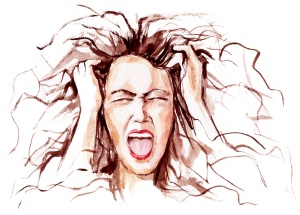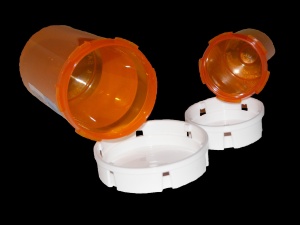Review: Bipolarized
My husband pointed out to me a movie available on one of our streaming services—Bipolarized: Rethinking Mental Illness, a 2014 documentary created by Ross McKenzie, a man who was diagnosed with bipolar disorder himself. In the film, he documented his journey to find treatments other than drugs for his condition. I watched it with interest and wanted to share my impressions with you. (IMDb gave it 5.7 out of 10 and said it “challenges conventional wisdom about mental illness and drug therapy through the raw personal journey of a man diagnosed as bipolar.”)
First, full disclosure: I take psychotropic medication (though not lithium, the villain of this piece) and am very satisfied with the results. However, I know that not everyone has the same experience and that there are people who are virulently against it. I’m not here to debate that today. I want to share what I learned from the movie.
The film follows McKenzie—not always in linear fashion—through his experiences with mental illness, psychotropic medications, and natural treatments. I’ll do my best here to unravel the chronology. The child of a seemingly perfect Canadian family (and more on that later), McKenzie experienced a psychotic break in 1993 when he gave away his money and clothes to street people in New York City and thought he could fly off the Empire State Building and land safely. His family convinced him to come home and were shocked at his manic behavior. At first, he was diagnosed as schizophrenic and hospitalized.
McKenzie escaped from the hospital, barged into a stranger’s house to use their phone, and ended up running down the street naked until he was subdued by police, taken back to the hospital, and put in a straightjacket in a padded room. (I didn’t know they still did that, even in 1993.) These scenes were recreated for the film.
At some point (I’m not too clear on this) his diagnosis was changed to bipolar disorder and he was given lithium. McKenzie became anhedonic, and the doctors told him this was it for the rest of his life—lithium and never accomplishing much of anything.
Determined to get his life back, McKenzie began a journey to heal himself through natural means. In 2010, he went through a lithium detox in Costa Rica. He notes that he had already tried to wean himself off lithium unsafely, making him debilitated and depressed. In Costa Rica, his detox included screaming headaches and vomiting, but was successful in getting him to kick lithium.
Next, McKenzie went to a naturopath who diagnosed him with lithium toxicity (two and a half years after he kicked it in Costa Rica) and prescribed a series of 30-40 chelation treatments to get the substance out of his system. The doctor measured his neurotransmitter levels, his bloodwork, and his kidney function for residual effects of the lithium. He also noted that McKenzie had high levels of lead and mercury (though those don’t come from lithium) and treated him for those as well.
McKenzie then traveled to Colombia, where he was treated by a shaman/psychic/psychic surgeon. It involved lying on a bed for two hours, covered in sheets of aluminum foil which were later bundled up and spit on, and meeting with his deceased father’s spirit. When back in the US, he also sampled cupping, acupuncture, and yoga, which he said helped ground him.
Other scenes in the movie include a parody commercial for “addictarin,” with McKenzie frolicking in a lawn sprinkler and sharing ice cream with a dog, before a crawl of “side effects” ran on and on, ending with death and halitosis. There was a visit with a former big pharma rep who had since denounced the system that she said was designed to addict people to psychotropics. There was footage of a protest outside an APA conference in Philadelphia which included marchers holding signs and chanting, “Hey, hey, APA! How many kids have you killed today?” McKenzie also interviewed debunker Robert Whitaker, author of Mad in America and Anatomy of an Epidemic.
At last, McKenzie saw Dr. Charles Whitfield, who said that half of patients with a psychiatric history of drugs and trauma actually have PTSD. Whitfield said McKenzie was never bipolar. Another practitioner, Peter Levine, a somatic therapist, worked with McKenzie in front of an audience to explore his family of origin and surface memories of his domineering, abusive father. One exercise involved imagining both himself and his father as seven-year-olds interacting.
The film, although it won awards, was not universally lauded. A review by H. Steven Moffic in Psychiatric Times titled “Warning: This Movie May Have Psychiatric Side Effects,” called the film a “movie selfie” and pointed out that there was no mention in it of conventional psychotherapy—only drug therapy. It also noted that no mention was made of McKenzie’s family’s evident privilege, which allowed him to travel to Costa Rica and Colombia for treatment. Most of the review, however, cited the film’s polarizing effect, pitting alternative treatments against mainstream ones, and said that he would be “very cautious” about recommending it to patients or the public. (I can’t imagine who else would be interested. Maybe psychologists?)
All in all, it was a difficult documentary to watch at times, and I thought some of the treatments seemed unlikely to help (especially the “psychic surgeon”). I’ve heard most of the debunking of psychotropic drugs before, but this was particularly vivid in the film. I think its major value lies in exposing the traumatic effects of McKenzie’s going on lithium in the first place.
Ross McKenzie now offers “mental health coaching services,” and, as stated in his 2024 blog, specializes in people “disempowered by labels” whose “perceptions were distorted by powerful psychotropics.”












Recent Comments